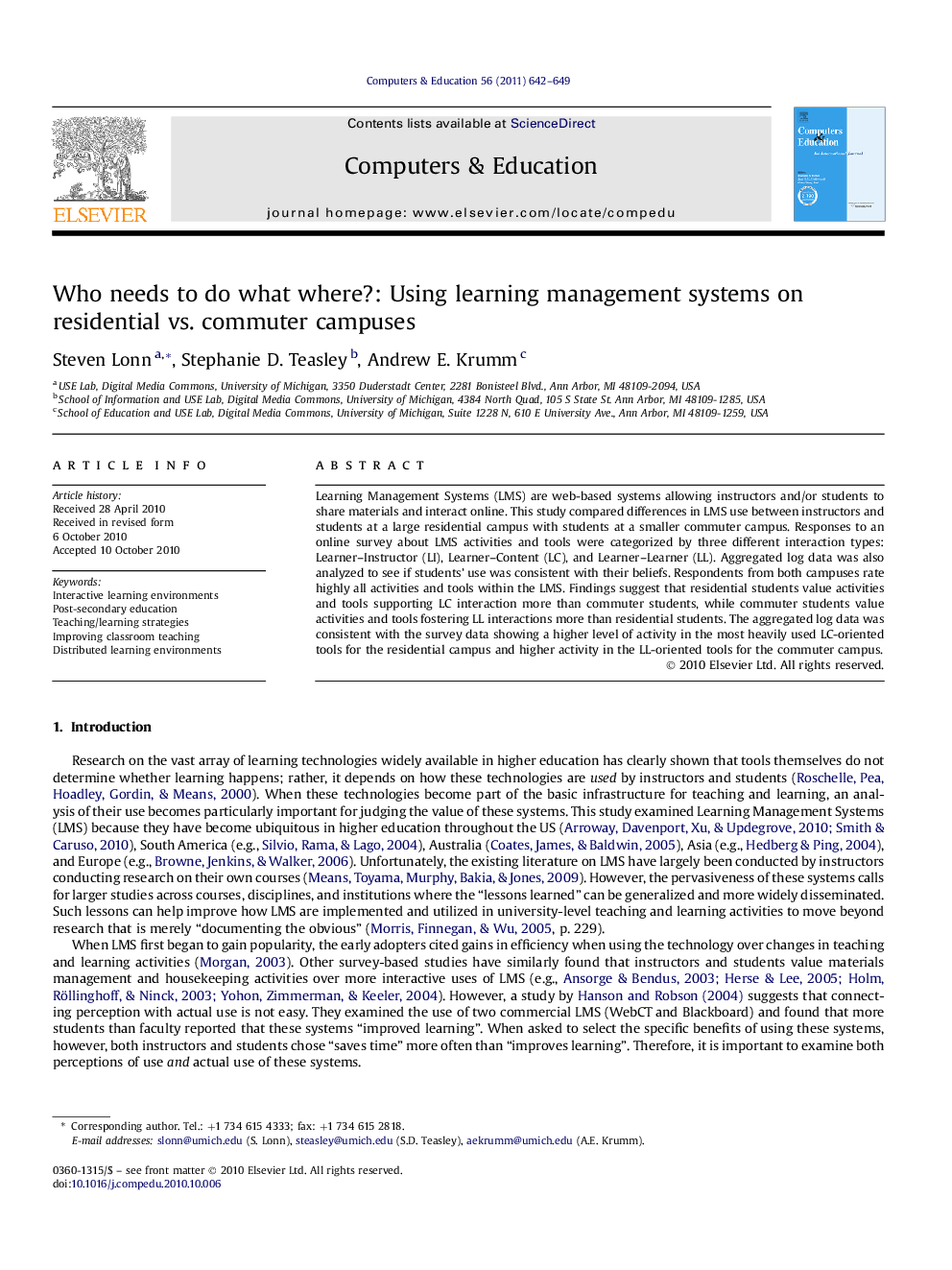| Article ID | Journal | Published Year | Pages | File Type |
|---|---|---|---|---|
| 348812 | Computers & Education | 2011 | 8 Pages |
Learning Management Systems (LMS) are web-based systems allowing instructors and/or students to share materials and interact online. This study compared differences in LMS use between instructors and students at a large residential campus with students at a smaller commuter campus. Responses to an online survey about LMS activities and tools were categorized by three different interaction types: Learner–Instructor (LI), Learner–Content (LC), and Learner–Learner (LL). Aggregated log data was also analyzed to see if students’ use was consistent with their beliefs. Respondents from both campuses rate highly all activities and tools within the LMS. Findings suggest that residential students value activities and tools supporting LC interaction more than commuter students, while commuter students value activities and tools fostering LL interactions more than residential students. The aggregated log data was consistent with the survey data showing a higher level of activity in the most heavily used LC-oriented tools for the residential campus and higher activity in the LL-oriented tools for the commuter campus.
